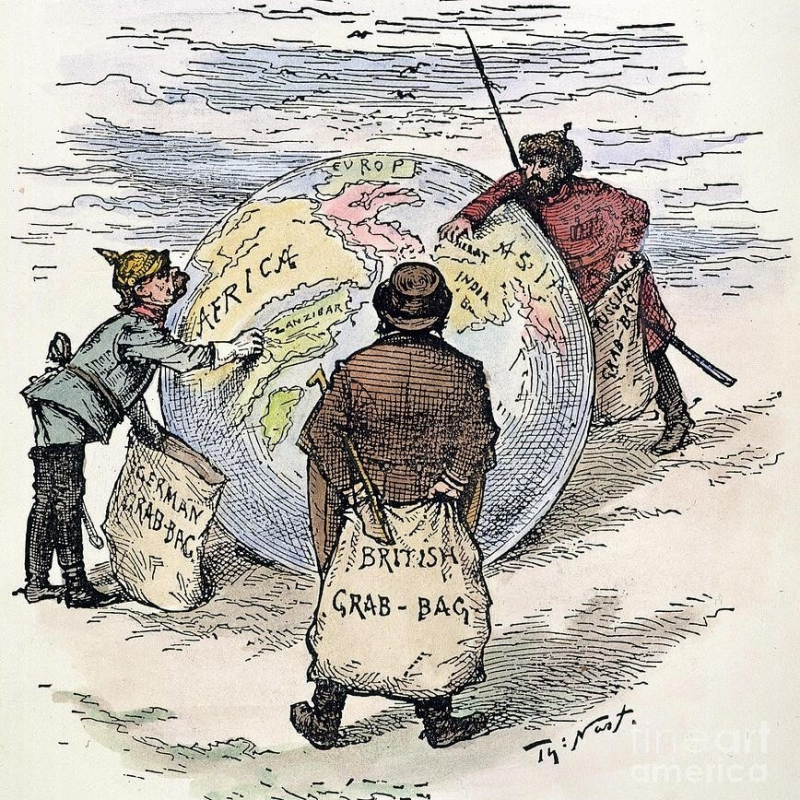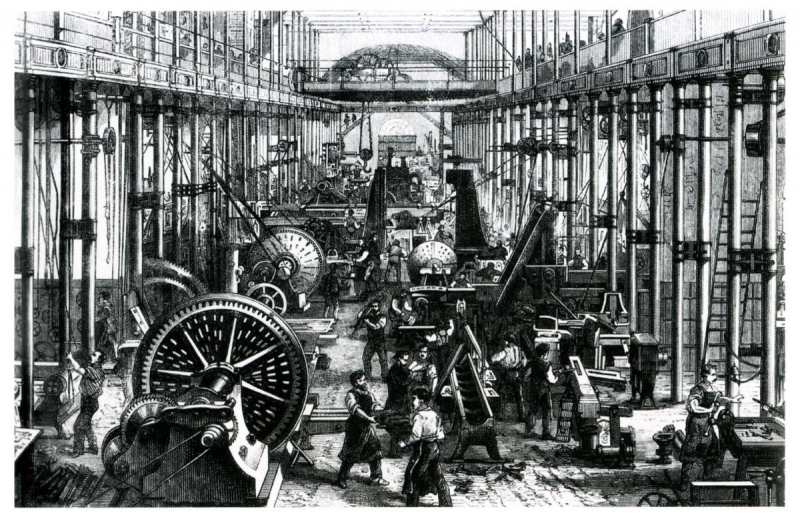Imperialism
Imperialism is the state policy, practice, or advocacy of spreading authority and dominion, particularly through direct territorial acquisition or obtaining political and economic control of other areas, frequently through the use of hard power, particularly military force, but also soft power. While colonialism and empire are related notions, imperialism is a unique concept that can apply to numerous modes of expansion and many forms of administration.
The Age of Imperialism, which began around 1760, saw European nations industrializing and colonizing, influencing, and annexing other portions of the world. Because of the resources made accessible by imperialism, the world's economy increased enormously and became much more integrated in the decade preceding World War I, enriching and prospering the various imperial states.
Europe's territorial imperialism was primarily concerned with economic growth through resource collection from colonies, as well as acquiring political authority through military and political means. In the nineteenth century, European expansion surged dramatically. In order to obtain raw materials, Europe increased imports from foreign countries and colonies. European industrialists sought raw commodities from elsewhere, such as colors, cotton, vegetable oils, and metal ores. Concurrently, industrialization was rapidly transforming Europe into the center of manufacturing and economic expansion, pushing resource demands.
According to Parvanova, the Industrial Revolution made it necessary for Europe to take over colonies all over the world. An empire will always desire to add colonies as a measure of national grandeur, but now there was an added incentive to conquer new lands. Because the Industrial Revolution dramatically enhanced Western states' production capability, there was a huge demand for raw materials to meet demand. The Western powers desired colonies where raw minerals were plentiful and could be obtained for little or no cost. Of course, their attention was drawn to Africa, which was rich in resources such as oil, ivory, rubber, wool, cotton, cocoa beans, copper, gold, iron, cobalt, diamonds, and so on.
Another reason is that the European empire developed enormous goods markets. For example, as European countries colonized parts of the world, trade routes were developed. This meant that any commodities manufactured in European factories may be shipped and sold to marketplaces all over the world. This contributed to the expansion of industrialization by allowing European firms to produce items on a much greater scale.










